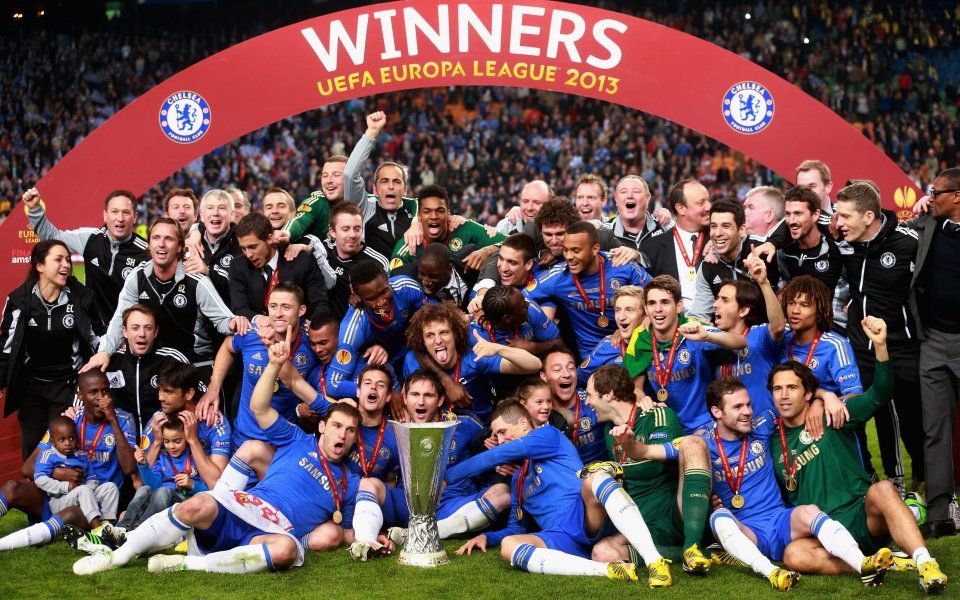How will Chelsea and Arsenal approach the Europa League this season?

When Eden Hazard signed for Chelsea six years ago, ending a year-long chase for his signature between some of Europe’s biggest clubs, he revealed his choice on Twitter, writing “I’m signing for the champion’s league winner [sic]”.
Chelsea’s aspirations have shifted since that triumphant night in Berlin and despite Hazard winning five major trophies and a PFA Player of the Year award during his time at Stamford Bridge, the Belgian forward has never been further away from winning the Champions League than he is now.
The club won’t even be participating in the competition this season. Instead, they will be playing in the Europa League, starting on Thursday night against PAOK in Greece.
This decline in Chelsea’s position among Europe’s elite comes after finishing fifth in the Premier League last year, 30 points behind champions Manchester City. The club have also failed to reach the Champions League quarter-finals since 2014, a situation that would have been unthinkable in the earlier years of Roman Abramovich’s ownership.
Yet the long-term prospects for the west London club could be best displayed on the road to Baku, where the Europa League final will be held this season, rather than in the Premier League.
Chelsea are no longer a side that looks to compete solely with the chequebook. Instead they have developed the most successful youth sides in Europe and a loan army of over 40 young prospects who play across the continent.

Pierre-Emerick Aubameyang is one of Arsenal's best players and could be very dangerous in the Europa League (Source: Getty)
This season’s Europa League could give their new manager, Maurizio Sarri, a chance to showcase in a competitive setting some of Chelsea’s brightest talents such as Andreas Christensen, Ethan Ampadu, Ruben Loftus-Cheek and Callum Hudson-Odoi.
If these young players can prove themselves across this sprawling tournament, it might even ease their path to the first-team squad, providing Chelsea with an answer to the problems posed in an era of clubs backed by the economies of entire nations.
Across London, Arsenal’s aspirations in the Europa League look like having more of a short-term focus.
In the last two seasons the club’s finishes of fifth and sixth have dented a strategy of consistent Champions League qualification, which they had achieved for 19 years in a row.
The stability provided by this approach has disappeared, along with Arsene Wenger who finally left the club after 22 years this summer.
His replacement, Unai Emery, has previously won the Europa League three years in a row with Sevilla. With the winners qualifying, this competition could be another gateway for Arsenal to the Champions League as it looks like being very difficult for this transitional side to finish in the top four this season.

PAOK fans are known for their ability to create a hostile atmosphere at the Toumba Stadium (Source: Getty)
After all, Arsenal were wretched for most of last year but still reached the Europa League semi-finals. With new signings such as Lucas Torreira now in the squad and world-class striker Pierre-Emerick Aubameyang eligible for the competition this season, there is no reason Arsenal can’t target a first European trophy since they won the 1994 Cup Winners’ Cup in Copenhagen.
The Gunners are playing FC Vorskla Poltava this week in their first Europa League group game. It should be a chance to see if Bernd Leno, the £22m goalkeeper Emery signed this summer, can smooth the rough edges of his team’s new approach of passing out from the back.
Current No1 Petr Cech has been criticised in recent weeks for his distribution, with the 36-year-old looking uncomfortable playing short passes and having the ball at his feet.
If Leno can begin the kind of passing moves that Arsenal fans want to see at Emirates Stadium, then the Gunners could defy expectations this season.
Read more: Trevor Steven: Where has it gone wrong for stale Spurs?
Consequently, while Chelsea and Arsenal both find themselves at something of a crossroads, with the status of each club having suffered a decline in recent seasons, their ambitions in the Europa League could be very different.
For Arsenal it is an opportunity to quickly re-establish themselves as a Champions League club, leave behind the Wenger era and move the team on in a new direction.
With Chelsea, it could be the first step in integrating young players and finding a way for the club to compete with the world’s best once again.